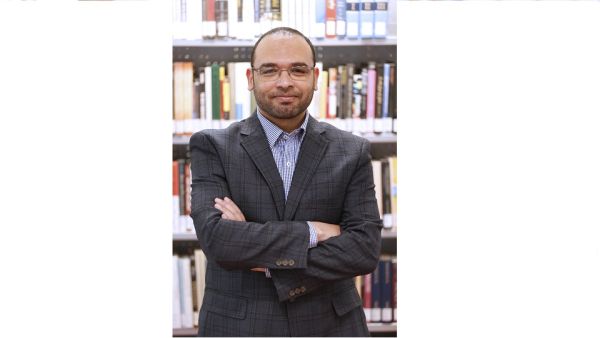Georgetown Scholar Publishes Research On The Historical Roots Of Islamic Responses To Covid-19

When the pandemic swept across the globe, impacting the lives of millions, one of the topmost priorities was to develop health protection measures to curb the spread of the virus and manage its impact. The historical background of these measures within the Muslim context is the focus of a newly published research article by Dr. Ayman Shabana, Associate Research Professor of Theology at QF partner Georgetown University in Qatar (GU-Q).
Many of these measures, such as suspending congregational prayer and the annual pilgrimage to Mecca, were reported as history-making by outside observers. But in his open-sourced article, “From the Plague to the Coronavirus: Islamic Ethics and Responses to the COVID-19 Pandemic” which appears in the Journal of Islamic Ethics, Dr. Shabana argues that these and other Islamic responses to the COVID-19 pandemic are based on an established tradition consisting of both interpretations of relevant scriptural texts as well as practical lessons gained from actual occurrences of epidemics and pandemics.
“Epidemics represent a very important and recurrent theme in world history and the Islamic normative tradition includes important discussions on these events,” explained Dr. Shabana, who also heads GU-Q’s research project on Islamic Bioethics. “These discussions are rooted in scriptural references in the foundational sources of Islam and they address a wide range of theological as well as ethical-legal questions.”
His article starts with an overview of the history of Islamic ethics during pandemics and other health crises. “Studying the history of these discussions provides a very important perspective into how Muslims have interacted with previous incidents and also how much this tradition adapts to new developments in Muslim societies,” he said. His article also analyzes contemporary measures guided by these traditions, including religious guidance on prevention and treatment of the novel coronavirus, and modifications of funerary rites and rituals.
The COVID-19 pandemic has created one of the major public health crises in modern history, which Dr. Shabana says changed the world in many significant ways. Through his ongoing research on Islamic Bioethics, he hopes to raise awareness of the issues involved.
“Academics in the humanities and social sciences study all types of human and social phenomena from a variety of perspectives,” he said, adding that “Results of these studies represent the foundation for not only further research into these topics in the future, but also for professional and multiple end-user's analyses on proper and effective ways to deal with these topics.”
Background Information
Georgetown University in Qatar
Established in 1789 in Washington, DC, Georgetown University is one of the world’s leading academic and research institutions. Georgetown University in Qatar (GU-Q), founded in 2005 in partnership with Qatar Foundation, seeks to build upon the world-class reputation of the university through education, research, and service. Inspired by the university’s mission of promoting intellectual, ethical, and spiritual understanding, GU-Q aims to advance knowledge and provide students and the community with a holistic educational experience that produces global citizens committed to the service of humankind.
Located in Doha’s Education City, GU-Q offers the same internationally recognized Bachelor of Science in Foreign Service degree as Georgetown’s Capitol Campus in Washington, DC. This unique, interdisciplinary program prepares students to tackle the most important and pressing global issues by helping them develop critical thinking, analytic, and communication skills within an international context. GU-Q alumni work in leading local and international organizations across industries ranging from finance to energy, education, and media. The Qatar campus also serves as a residency and delivery location for the Executive Master’s in Emergency and Disaster Management along with the Executive Master’s in Leadership.







